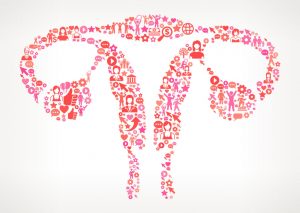Lets Talk Menopause
 Managing Menopause – throughout the menopausal transition, some subtle and some not-so-subtle changes may take place in your body. Some of the more common changes are hot flushes, night sweats and menstrual cycle changes. However, it is thought that there are up to 34 signs and symptoms of peri-menopause which can last up to 15 years. Many of these symptoms relate to changes in hormone levels.
Menopause simply means the pausing of menstruation – the last period. Peri-Menopause means ‘Around Menopause’ the period of time leading up to menopause, marking the end of the reproductive years. Post Menopause – simply means ‘After Menopause’ – The average age of women experiencing menopause is 52yrs. It is commonly diagnosed based on age and symptoms and is medically diagnosed 12 months after the last menstruation.
Managing Menopause – throughout the menopausal transition, some subtle and some not-so-subtle changes may take place in your body. Some of the more common changes are hot flushes, night sweats and menstrual cycle changes. However, it is thought that there are up to 34 signs and symptoms of peri-menopause which can last up to 15 years. Many of these symptoms relate to changes in hormone levels.
Menopause simply means the pausing of menstruation – the last period. Peri-Menopause means ‘Around Menopause’ the period of time leading up to menopause, marking the end of the reproductive years. Post Menopause – simply means ‘After Menopause’ – The average age of women experiencing menopause is 52yrs. It is commonly diagnosed based on age and symptoms and is medically diagnosed 12 months after the last menstruation. Many Symptoms of Menopause
 Symptoms are caused by lowered levels of oestrogen and progesterone which can affect the ovaries, skin, breasts, brain, bones, endocrine system, heart, bladder, kidneys, liver and pancreas. No wonder we can experience so many different symptoms.
A recent survey revealed that the menopause can have a huge impact on many women’s lives and that up to 33% of women hadn’t tried anything to help ease their symptoms. A whopping 75% of women say that the menopause has changed their lives and sadly, 50% feel that it’s impacted their life in a negative way. 51% of women say that menopause has affected their sex life. Genitourinary syndrome of menopause (GSM) can have a huge impact on a woman’s life. Vaginal and bladder atrophy is a menopausal symptom that doesn’t get talked about as much as the others but affects over 50% of us.
Symptoms include vaginal dryness, burning, discharge, genital itching, burning with urination, urgency with urination, frequent urination, recurrent urinary tract infections, urinary incontinence, light bleeding after intercourse, discomfort with intercourse, decreased vaginal lubrication during sexual activity, shortening and tightening of the vaginal canal. Quite an extensive list of unpleasant symptoms isn’t it…? During the reproductive years oestrogen supports the production of cervical mucous which keeps the vaginal tissues elastic and mobile and supports bladder function but as levels lessen vaginal tissue thins and can tear, natural lubrication decreases, sex can become painful, urinary tract infections can increase and libido can decrease…not much fun is it…??
Symptoms are caused by lowered levels of oestrogen and progesterone which can affect the ovaries, skin, breasts, brain, bones, endocrine system, heart, bladder, kidneys, liver and pancreas. No wonder we can experience so many different symptoms.
A recent survey revealed that the menopause can have a huge impact on many women’s lives and that up to 33% of women hadn’t tried anything to help ease their symptoms. A whopping 75% of women say that the menopause has changed their lives and sadly, 50% feel that it’s impacted their life in a negative way. 51% of women say that menopause has affected their sex life. Genitourinary syndrome of menopause (GSM) can have a huge impact on a woman’s life. Vaginal and bladder atrophy is a menopausal symptom that doesn’t get talked about as much as the others but affects over 50% of us.
Symptoms include vaginal dryness, burning, discharge, genital itching, burning with urination, urgency with urination, frequent urination, recurrent urinary tract infections, urinary incontinence, light bleeding after intercourse, discomfort with intercourse, decreased vaginal lubrication during sexual activity, shortening and tightening of the vaginal canal. Quite an extensive list of unpleasant symptoms isn’t it…? During the reproductive years oestrogen supports the production of cervical mucous which keeps the vaginal tissues elastic and mobile and supports bladder function but as levels lessen vaginal tissue thins and can tear, natural lubrication decreases, sex can become painful, urinary tract infections can increase and libido can decrease…not much fun is it…?? Managing Menopause - Making healthy lifestyle choices
 There is some good news though. Making healthy lifestyle choices can help ease some of the symptoms during perimenopause and promote good health as you age. Conditions related to your heart may arise, such as dizziness or cardiac palpitations. Decreased oestrogen levels can prevent your body from retaining flexible arteries which can impact blood flow. Physical activity can help your bones, heart, and mood. Watching your weight, eating a healthy and balanced diet, which includes foods with lots of calcium, such as dairy products or dark leafy greens, taking vitamin D supplements, exercising regularly, reducing alcohol intake and not smoking can reduce your chances of developing conditions of the brain and the heart.
Sexual activity increases blood flow to your vagina, which helps keep vaginal tissues healthy. Regular sexual activity, either with or without a partner, using a PH balanced lubricant during sex, wearing cotton underwear, avoiding douching, may help prevent genitourinary syndrome of menopause.
There is some good news though. Making healthy lifestyle choices can help ease some of the symptoms during perimenopause and promote good health as you age. Conditions related to your heart may arise, such as dizziness or cardiac palpitations. Decreased oestrogen levels can prevent your body from retaining flexible arteries which can impact blood flow. Physical activity can help your bones, heart, and mood. Watching your weight, eating a healthy and balanced diet, which includes foods with lots of calcium, such as dairy products or dark leafy greens, taking vitamin D supplements, exercising regularly, reducing alcohol intake and not smoking can reduce your chances of developing conditions of the brain and the heart.
Sexual activity increases blood flow to your vagina, which helps keep vaginal tissues healthy. Regular sexual activity, either with or without a partner, using a PH balanced lubricant during sex, wearing cotton underwear, avoiding douching, may help prevent genitourinary syndrome of menopause. Hormone Replacement Therapy (HRT) - Managing Menopause
 Hormone Replacement Therapy (HRT) is a hormone treatment that includes the hormones oestrogen, often progesterone and sometimes testosterone. It can be an effective way to treat symptoms of the perimenopause and menopause.
Reflexology is a safe and natural therapy that can help support you through this transition and help to minimise the impact of some of the symptoms. It can also be very beneficial in reducing stress levels, aiding relaxation, calming the mind, improving circulation, boosting the immune system, balancing the endocrine system and promoting more effective sleep.
Menopause is something women can’t avoid, however, making some adjustments to our lifestyle could help minimise or prevent some of the many symptoms that can occur during this lengthy phase of our lives
Hormone Replacement Therapy (HRT) is a hormone treatment that includes the hormones oestrogen, often progesterone and sometimes testosterone. It can be an effective way to treat symptoms of the perimenopause and menopause.
Reflexology is a safe and natural therapy that can help support you through this transition and help to minimise the impact of some of the symptoms. It can also be very beneficial in reducing stress levels, aiding relaxation, calming the mind, improving circulation, boosting the immune system, balancing the endocrine system and promoting more effective sleep.
Menopause is something women can’t avoid, however, making some adjustments to our lifestyle could help minimise or prevent some of the many symptoms that can occur during this lengthy phase of our lives 
